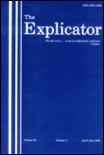
EXPLICATOR
Scope & Guideline
Bridging Theory and Practice in Literary Studies
Introduction
Aims and Scopes
- Literary Analysis and Criticism:
The journal publishes in-depth analyses of literary works, applying various critical frameworks ranging from historical to feminist readings, and exploring themes such as identity, gender, and societal norms. - Interdisciplinary Approaches:
Research often integrates insights from other disciplines, such as philosophy, psychology, and cultural studies, allowing for richer interpretations of texts. - Focus on Diverse Literature:
The journal showcases a wide variety of literary works, including classics from authors like Shakespeare and modern texts from contemporary writers, reflecting on their relevance in today's context. - Exploration of Thematic Elements:
Papers frequently delve into thematic explorations, such as trauma, memory, and existentialism, providing nuanced readings that connect literature to broader human experiences. - Emphasis on Historical Context:
Many articles examine the historical and cultural contexts of literature, facilitating a deeper understanding of the texts and their implications within their respective eras.
Trending and Emerging
- Intersectionality in Literary Studies:
There is a growing emphasis on intersectionality, particularly regarding gender, race, and sexuality, reflecting a broader movement within literary studies to explore how these identities intersect within texts. - Environmental and Ecocritical Perspectives:
Recent publications demonstrate an increased focus on ecocriticism, examining literature's engagement with environmental themes, sustainability, and the human-nature relationship. - Queer Theory and LGBTQ+ Perspectives:
The exploration of LGBTQ+ themes and queer theory in literature has become more prominent, highlighting the significance of diverse sexual identities and experiences in literary narratives. - Global Literary Perspectives:
An emerging interest in global literature, particularly works from underrepresented cultures and voices, is evident, indicating a shift towards a more inclusive literary discourse. - Narratives of Trauma and Healing:
A notable trend is the exploration of trauma narratives and their implications for identity and healing, connecting literary analysis to psychological and sociocultural frameworks.
Declining or Waning
- Postmodernist and Meta-narrative Themes:
There has been a noticeable decline in the exploration of postmodernist themes and meta-narratives, which were once prevalent in literary criticism, indicating a possible shift towards more traditional or historical literary analyses. - Heavy Theoretical Frameworks:
Papers relying heavily on complex theoretical jargon or frameworks, particularly those rooted in poststructuralism, appear to be less frequent, suggesting a move towards more accessible and straightforward analyses. - Narrowly Focused Literary Canon:
Previously, there was a significant emphasis on niche literary works or lesser-known authors; however, recent publications have increasingly gravitated towards more mainstream literature and canonical texts. - Political and Social Critique:
While still present, the frequency of papers focusing explicitly on political critique or social justice themes in literature has diminished, possibly reflecting changing academic priorities.
Similar Journals
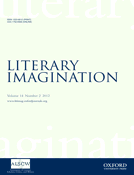
Literary Imagination
Engaging Minds Through Literary ExplorationLiterary Imagination, published by Oxford University Press, is an esteemed journal that delves into the intricate world of literature and literary theory. With the ISSN 1523-9012 and the E-ISSN 1752-6566, this journal serves as a pivotal platform for scholars and practitioners in the field, striving to advance the understanding of imaginative literature from various critical perspectives. Boasting a 2023 rank of #751 out of 1106 in the Arts and Humanities category on Scopus, and categorized in the Q3 quartile for literature and literary theory, the journal is recognized for its contribution to the academic discourse. It aims to foster a vibrant academic community through the publication of innovative research, critical essays, and interdisciplinary studies that engage with the complexities of literary creation from 2009 to 2024. While currently not an open access journal, its rich repository of scholarly work remains accessible to researchers, professionals, and students aiming to enrich their understanding of literary narratives and their theoretical frameworks.
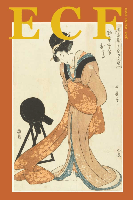
Eighteenth-Century Fiction
Celebrating the Rich Tapestry of Eighteenth-Century LiteratureEighteenth-Century Fiction is a premier academic journal dedicated to advancing the study of literature from the eighteenth century, publishing innovative research that contributes to understanding the cultural and historical contexts of this dynamic period. Published by University of Toronto Press, Inc., this journal boasts an impressive Q1 categorization in the field of Literature and Literary Theory, reflecting its significant impact on discourse among scholars. Since its inception in 2002, the journal has provided a platform for interdisciplinary exploration and critical analysis, appealing to researchers, professionals, and students alike. With an ongoing commitment to quality and scholarly excellence, Eighteenth-Century Fiction serves as an essential resource for those seeking to delve into the literary innovations and societal transformations of the eighteenth century. Access to its rich collection of articles ensures that the academic community remains engaged with emerging trends and pivotal research in this vital area of study.
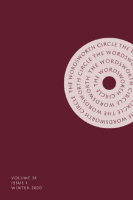
WORDSWORTH CIRCLE
Fostering Dialogue in Literary and Cultural StudiesWORDSWORTH CIRCLE, an esteemed journal published by University of Chicago Press, serves as a pivotal platform for scholars and enthusiasts in the fields of Cultural Studies and Literature and Literary Theory. With a firm foundation established from 2002 and expected to continue through 2024, the journal is recognized for its rigorous scholarship, evident in its prestigious ranking of Q1 in Literature and Literary Theory and Q2 in Cultural Studies for the year 2023. Although it is not an open-access journal, its valuable contributions to the discourse surrounding literary analysis and cultural critique make it a significant resource for researchers, students, and practitioners seeking to deepen their understanding of these dynamic fields. The journal's ISSN is 0043-8006, and it operates out of Chicago, IL, with its influence resonating across academic institutions and literary circles globally. By bridging historical perspectives and contemporary discussions, WORDSWORTH CIRCLE remains an essential publication for those dedicated to exploring the complexities of literature and culture.
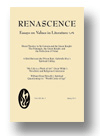
RENASCENCE-ESSAYS ON VALUES IN LITERATURE
Illuminating the Intersection of Literature and HumanityRENASCENCE: Essays on Values in Literature is a prestigious scholarly journal published by Marquette University Press, dedicated to exploring the intricate relationship between literature and the human experience. With a focus on values as manifested in literary texts, this journal contributes significantly to the field of literature and literary theory. Despite its current status as a Q4 journal as per the 2023 category quartiles, it serves as a vital platform for interdisciplinary dialogue, drawing together a diverse range of voices from seasoned scholars to emerging researchers. Operating without open access, it invites subscription and institutional support to maintain its dedication to high-quality scholarship. The journal's ISSN is 0034-4346 and its E-ISSN is 2329-8626, ensuring both print and digital access to its rich collection of essays and critical analyses. As it converges towards its next milestone in 2024, RENASCENCE continues to engage with the fundamental values that literature imparts, fostering a deeper understanding of texts that resonate within our contemporary societal framework.
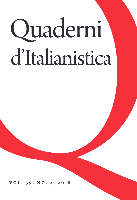
QUADERNI D ITALIANISTICA
Connecting Scholars Through Italian Literary InsightsQUADERNI D ITALIANISTICA is a distinguished journal dedicated to the field of Italian Studies, focusing on literature and literary theory. Published by QUADERNI D ITALIANISTICA and based in Canada, this journal serves as a platform for scholars, researchers, and students alike to engage with critical analyses and scholarly contributions related to Italian literature. Although it has a Q4 ranking in the 2023 category of Literature and Literary Theory and a Scopus rank of #655 out of 982, the journal plays a pivotal role in fostering discourse within this niche. Since its inception in 2002, the journal has contributed significantly to the study of Italian literature, providing a valuable resource for those looking to explore thematic, historical, and narrative aspects of Italian texts. While access to the journal is not offered freely, its comprehensive coverage until 2018 and again in 2020-2021 ensures a rich archive for critical research endeavors. As such, QUADERNI D ITALIANISTICA remains an essential resource for anyone invested in the intricate landscapes of Italian cultural and literary studies.
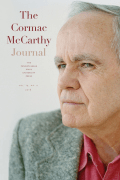
Cormac McCarthy Journal
Unraveling the Complex Tapestry of Cormac McCarthyWelcome to the Cormac McCarthy Journal, a distinguished publication dedicated to the scholarly exploration of the works and influence of acclaimed author Cormac McCarthy. Published by Penn State University Press, this journal serves as a vital platform for researchers, academics, and literary enthusiasts who seek to engage in critical discussions and analyses of McCarthy’s profound literary contributions. While the journal currently operates under traditional access, it promises rigorous peer-reviewed articles that interrogate thematic complexities, narrative techniques, and cultural impacts within McCarthy's oeuvre. As the interest in American literature continues to flourish, the Cormac McCarthy Journal stands out by fostering an academic community dedicated to understanding the nuances of one of the most significant contemporary writers. Scholars are encouraged to contribute to this growing field of study, ensuring that new insights into McCarthy's work are shared and disseminated for both current and future generations of literary scholars and students.

NOVYI MIR
Cultivating Insight into Contemporary Cultural IssuesNOVYI MIR, published by IZD STVO IZVESTIYA, is a distinguished journal that provides a platform for scholarly discourse in the humanities, literature, and cultural studies. With an ISSN of 0130-7673, this journal has made significant contributions to the academic community, particularly within Russia and Eastern Europe. Although it does not currently offer an open access model, its content is revered for its quality and depth, catering to researchers, professionals, and students alike. With a commitment to examining contemporary issues through a literary lens, NOVYI MIR is essential for those seeking to explore the intersection of culture and society. The journal's relevance is underscored by its esteemed reputation in literary circles, making it a vital resource for anyone dedicated to understanding the nuances of Russian literature and thought.
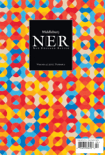
NEW ENGLAND REVIEW-MIDDLEBURY SERIES
Pushing Boundaries in Literary Analysis and TheoryNEW ENGLAND REVIEW-MIDDLEBURY SERIES, published by MIDDLEBURY COLLEGE PUBLICATIONS, stands as a significant contributor to the field of literature and literary theory since its inception in 2002. This journal, holding an ISSN of 1053-1297 and an E-ISSN of 2161-9131, offers a platform for innovative literary scholarship that resonates with contemporary discourse while fostering an appreciation for classic narratives. Though classified in Q4 in the category of Literature and Literary Theory as per the 2023 rankings, it aims to enhance its visibility and impact within the academic community. With a current rank of #1046 out of 1106 in Scopus Arts and Humanities, it invites researchers, professionals, and students alike to submit their work, engage in the literary dialogue, and explore the rich spectrum of human experience through literature. While it operates without open access options, the journal remains committed to high-quality contributions that push the boundaries of literary analysis and theory.
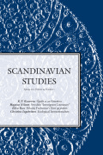
SCANDINAVIAN STUDIES
Cultivating Insights into the Scandinavian Academic RealmSCANDINAVIAN STUDIES is a prestigious journal dedicated to advancing the understanding of Scandinavian languages, literature, and culture. Published by the Society for the Advancement of Scandinavian Studies in the United States, this journal has been a key resource for scholars since its inception in 1974, covering a breadth of topics in both Linguistics and Literary Theory. With an impactful presence within academic circles, it has achieved a notable ranking in the Q2 category for Literature and Literary Theory, and Q3 for Linguistics and Language, ensuring its relevance among leading journals in the humanities. The journal is indexed in reputable databases, including Scopus, where it ranks in the 65th percentile for literature studies. Although it is not open access, SCANDINAVIAN STUDIES provides critical insights and scholarly contributions that greatly enhance discourse in Scandinavian studies. Researchers, professionals, and students alike will find this journal a valuable tool for deepening their understanding of the rich tapestry of Scandinavian contributions to world culture.
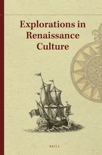
Explorations in Renaissance Culture
Unraveling the Tapestry of Renaissance ThoughtExplorations in Renaissance Culture, published by BRILL, is a pivotal academic journal that delves into the multifaceted aspects of Renaissance studies, encompassing Cultural Studies, History, Literature and Literary Theory, Music, Philosophy, and the Visual Arts. Established in 1976 and operating without an open access model, the journal has evolved as a critical platform for scholars and enthusiasts alike, providing rigorous analysis and innovative perspectives on the cultural currents of the Renaissance era. With an ISSN of 0098-2474 and an E-ISSN of 2352-6963, it has garnered a respectable standing among academic peers, evidenced by its quartile ranking in the Q4 category across multiple fields as of 2023 and its Scopus rankings, which acknowledge its role within the broader arts and humanities disciplines. Based in the Netherlands, the journal plays a vital role in fostering scholarly dialogue and advancing research, making it an essential resource for researchers, professionals, and students committed to expanding their understanding of this transformative period in history.